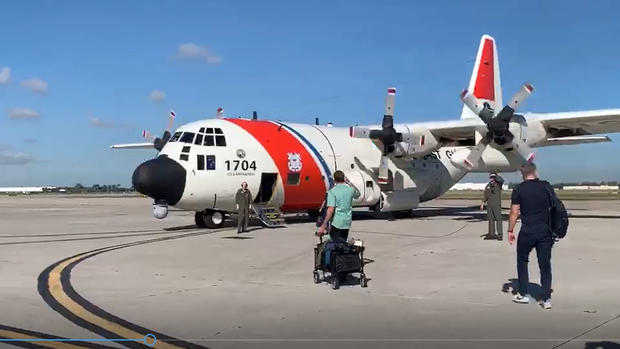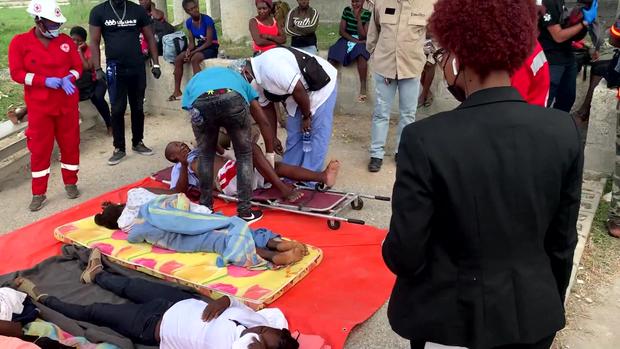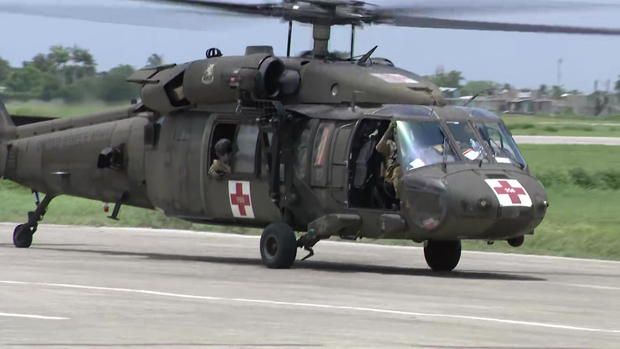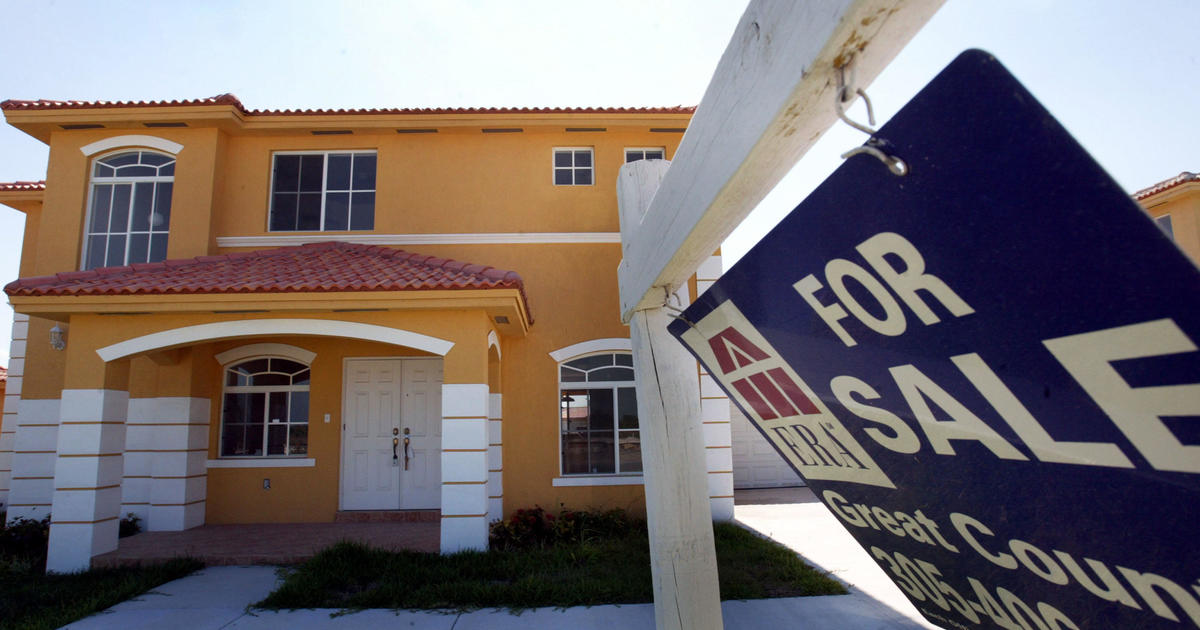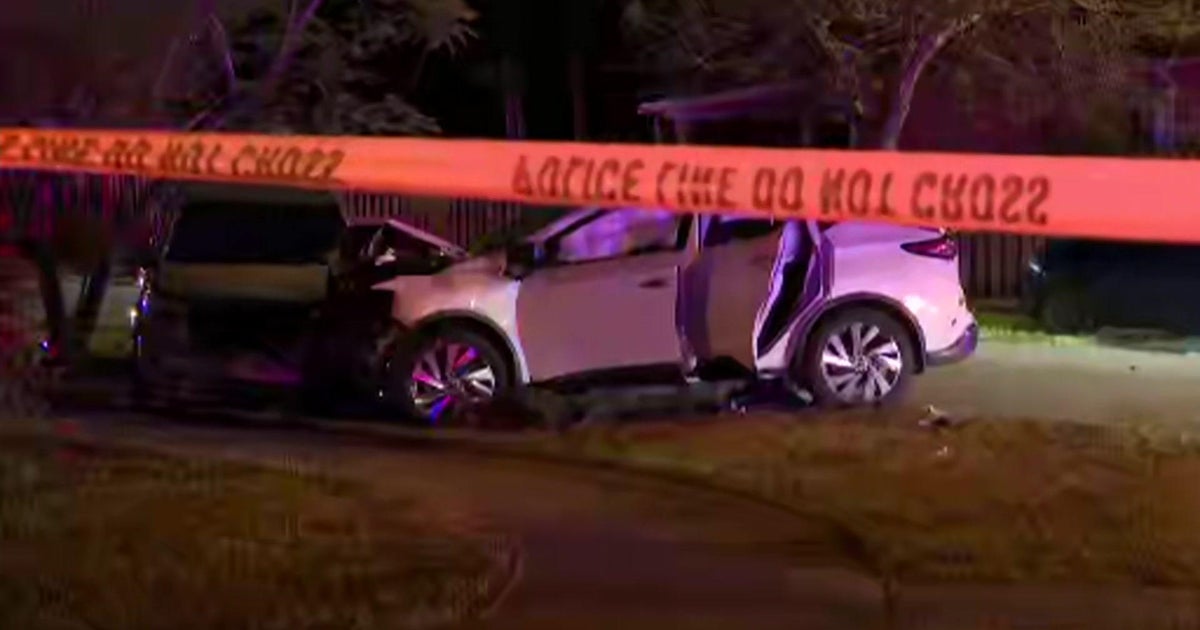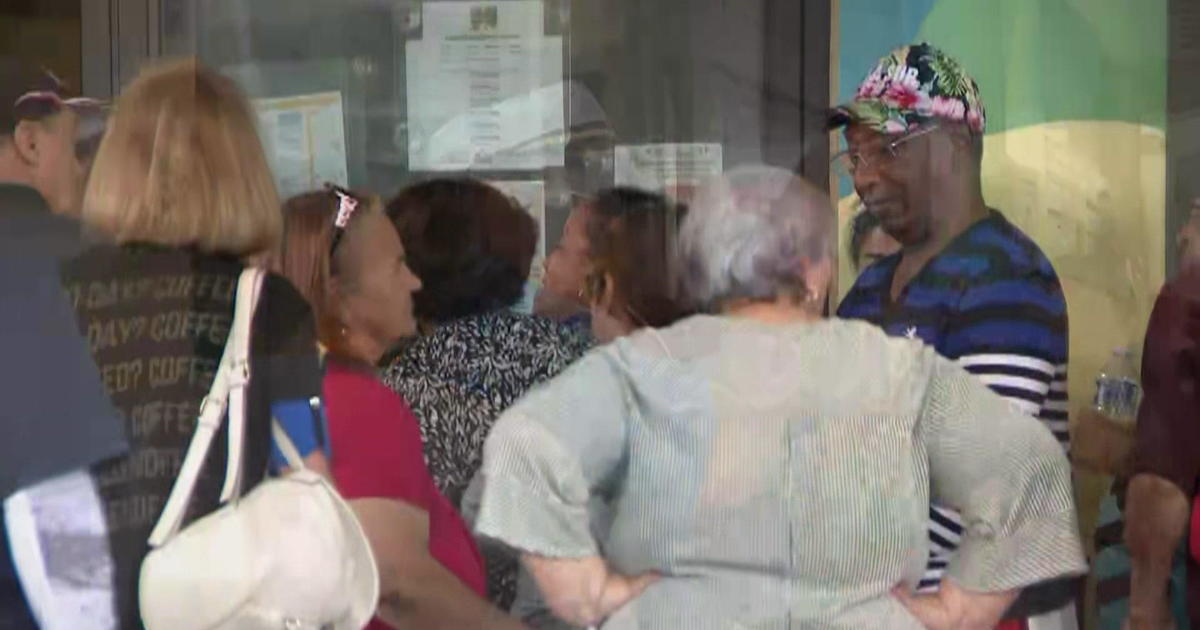CBS4's Brooke Shafer In Haiti Witnesses Medical Crisis In Wake Of Deadly Earthquake
MIAMI (CBSMiami) -- The death toll in Haiti from the recent 7.2 magnitude earthquake has topped the two thousand mark. A humanitarian flight left Opa-locka Executive Airport on Friday morning carrying much needed life-saving supplies.
CBS4's Brooke Shafer was the only South Florida news reporter on that C-130 relief flight, getting a birds-eye view of the hard-hit island.
The nearly two-hour flight took her from Opa-locka, over the Bahamas and landed in Haiti's capital, Port-au-Prince, where she witnessed the medical crisis taking place.
Within minutes of her arrival, Brooke witnessed someone on a gurney being taken off a helicopter.
Rescue teams are going out to remote areas to find people who were hurt in the earthquake and bringing them to a triage area at the airport. From there, they are put into ambulances and taken to hospitals.
The triage area does not have any beds or hospital gurneys.
"We're receiving all the patients coming directly from Jeremie and Les Cayes that the US Coast Guard and others are bringing up. We're triaging here at the airport. We are working closely with all the local hospitals so that we are not overwhelming our hospital, also so that patients can get to the specialties that they need as quickly as we could get them there," explained Stacy House from Project Medishare.
Hospitals in Port-au-Prince are at capacity and doctors are struggling to treat the over twelve thousand earthquake victims.
House, one of the doctors treating what seemed like a non-stop influx of the injured, said there are a lot of bone fractures and head injuries but now infections are setting in.
"A lot of wounds are looking worse because they were almost a week out. So, without care, there's a lot of infection."
She sees about 40 or so patients a day, she said.
Many of the wounded arriving now are from the harder to reach areas, including children.
"The people that were closest to the centers where the helicopters could get in first, they were able to get out first and get to the bigger hospitals down there that we're still functioning first. What we're seeing is a lot of people who are from little villages from out and they're having to walk and make their way to Jeremie and Les Cayes so that they can meet the helicopters and come on out to us and we can get them better care," explained House.
Chopper co-pilot Caitlyn Gever described some of the injuries they've seen.
"The ones that were definitive were mostly fractures. There was a tibia and fibia fracture, a femur and a pelvic fracture as well."
Since the earthquake struck, the U.S. Coast Guard has already saved more than 100 people and helped another 200. They've transported 85-hundred pounds of disaster and relief supplies.
Key issues are still urban search and rescue, hygiene, and water sanitation.
The mission in Haiti is critical and complicated.
"Communications have come down, so getting acclimated to the territory, to the land, and finding landing zones that we can land at and then being able to sustain things like fuel for our helicopters and our airfares," explained Coast Guard Rear Admiral Brendon McPherson.
In a blow to relief efforts, a major hospital in Port au Prince closed as part of a two-day shut down to protest the kidnapping of two Haitian doctors. One of the doctors was among the country's few orthopedic surgeons, who are desperately needed for quake victims with broken limbs. Another doctor was an obstetrician en route to perform an emergency cesarean delivery. Officials said the delay in treatment for his patient led to her death and that of her child.
Relief supply shipment trucks are also being rushed by survivors who have been left hungry and homeless, and in some cases stealing desperately needed supplies. People stole foam mattresses and food Friday in the small, hard-hit port city of Les Cayes. In the town of Vye Terre, men climbed onto the back of a half-open container truck and pulled out sacks of food that others then carried away. The Aug. 14 quake killed nearly 2,200 people, injured more than 12,000 and destroyed or damaged more than 100,000 homes.
Click here for a list of organizations gathering funds and supplies to help those in need in Haiti.
